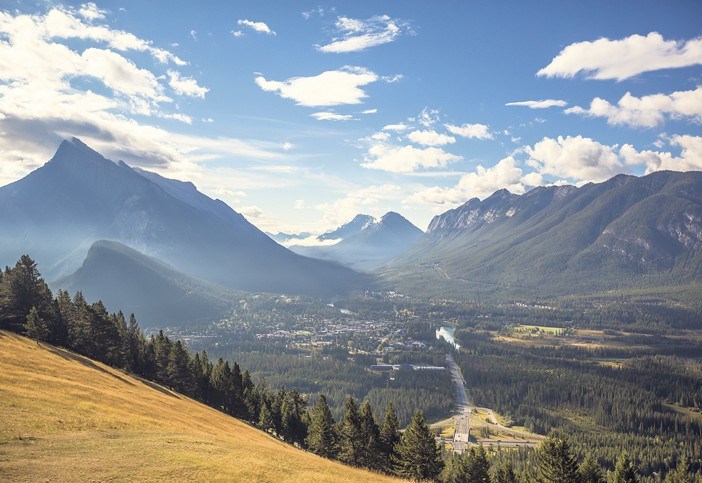BANFF – Banff’s hospitality and tourism industry is the latest sector looking at ways to eliminate the use of single-use items to reduce its environmental footprint.
Last week, the Banff Lake Louise Hospitality Association (BLLHA) held a workshop to discuss ways it can move towards a more environmentally sustainable future.
“Cutting out straws, single-use plastics and other single-use items has certainly become a global movement and it’s something that people are very keen to embrace because of how visible these items are and how relatively easy it is to stop using them,” said Banff’s Mayor Karen Sorensen.
She said the Town of Banff has already embarked on a comprehensive 10-year environmental plan, including a goal to divert 70 per cent of the community’s waste from heading to the landfill by 2028 and preventing waste coming into homes and businesses in the first place.
“We asked residents and visitors to tell us what they wanted our community to do to make a positive impact on the environment and a lot of people said ban single-use plastics,” said Sorensen, adding the Town currently diverts 46 per cent of its waste.
“It’s a very visible way we create waste and cutting it out is a way we can bring our values as a national park community to the forefront.”
The mayor said the ultimate goal is to move towards a zero waste future and create a circular economy.
“Right now our economy is make, use, dispose, but what if we changed our thinking and instead really focused on make, use, repair, reuse and then recycle?”
She said an even easier way to cut the Town’s waste would be to stop “planned waste” from coming into the community.
“By planned waste, I mean items that serve a limited purpose and they are planned to be disposed almost as soon as it gets into the consumers’ hands,” said Sorensen, pointing to plastic bags people use for the vegetables at the grocery store as a good example.
Beyond reducing the town’s landfill-bound waste, she said the Town has also implemented several initiatives to help residents and businesses reduce the amount of energy they use, thereby cutting their greenhouse gas emissions.
For example the Town of Banff currently offers the commercial sector rebates on water efficient toilets, energy efficient windows and doors and installing solar panels on their roofs.
Darren Reeder, executive director of BLLHA, described the Town’s environmental master plan as a “forward thinking” document that will help underpin the industry’s push to become more environmentally sustainable.
“When the Liberal government was elected in 2015, we started to change our lens about what sustainable tourism looked like. Up to that point we hadn’t really used those words I think in a consistent sentence structure,” said Reeder.
“If any of you recall the government’s mandate at the time, one piece that they laid down specific to national parks was to promote Canada’s national parks and work with nearby communities to support eco-tourism industries to create jobs.”
He said the use of eco-tourism initially confused a lot of people because up until then a lot of people thought of eco-tourism as something that only happened in tropical countries.
After digging into a bit more, he said they discovered that eco-tourism is not only applicable to everything that the tourism industry is trying to do in Banff National Park, it also aligns closely with Parks Canada’s mandate.
“Eco-tourism is responsible travel to natural areas that conserve the environment, sustains the well being of the local people and involves interpretation and education,” said Reeder, referring to the official definition by the International Society of Ecotourism.
During his remarks, he said eliminating single use items is a laudable goal, but only a start of a broader discussion to create a sustainable tourism industry.
“Tourism in all its forms is a symbiotic relationship between economic, environment and social systems,” said Reeder. “Every action we take today is a step towards ensuring that desired goal.” READ MORE ON BANFF SUSTAINABILITY: Banff sets goals though environmental plan Banff sets sights on becoming model sustainable community




